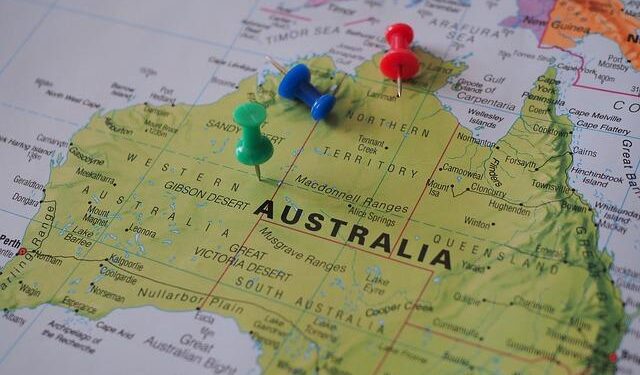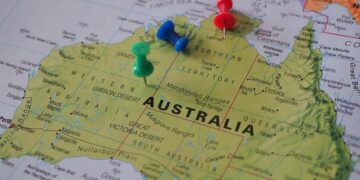Caritas Internationalis, a leading global humanitarian organization, continues to expand its impactful work across Oceania, addressing urgent social and environmental challenges. Through its regional initiatives, detailed on caritas.org, Caritas Oceania is focusing on disaster response, poverty alleviation, and advocacy for climate justice, crucial for the island communities facing rising sea levels and economic hardships. This article explores how Caritas is mobilizing resources and local partnerships to support vulnerable populations in Oceania, highlighting key projects and the organization’s commitment to fostering resilience in one of the world’s most climate-sensitive regions.
Oceania Faces Growing Climate Challenges Impacting Vulnerable Communities
The islands of Oceania are increasingly grappling with the devastating effects of climate change, putting millions of vulnerable people at risk. Rising sea levels, more frequent cyclones, and prolonged droughts are not only threatening homes and livelihoods but are also exacerbating poverty and food insecurity. Coastal communities, especially indigenous populations, face displacement as saltwater infiltration damages agricultural lands and freshwater supplies become scarce. Governments and aid organizations are racing against time to implement adaptation strategies, yet the scale of the crisis often outpaces the available resources.
Key challenges impacting these communities include:
- Loss of arable land due to erosion and flooding
- Health risks from waterborne diseases and heat stress
- Food insecurity driven by disrupted fishing and farming
- Economic instability resulting from damaged infrastructure
| Region | Most Affected Vulnerability | Primary Climate Threat |
|---|---|---|
| Micronesia | Freshwater scarcity | Saltwater intrusion |
| Polynesia | Coastal erosion | Rising sea levels |
| Melanesia | Crop failures | Unpredictable rainfall |
Caritas Oceania Launches Initiatives to Support Disaster Resilience and Sustainable Development
Caritas Oceania has unveiled a series of targeted programs aimed at strengthening community resilience in the face of increasing natural disasters and accelerating climate change effects. These initiatives are designed to empower vulnerable populations across Pacific island nations through sustainable development practices and disaster preparedness education. Emphasizing collaboration, the organization is partnering with local governments, faith-based institutions, and grassroots groups to implement holistic solutions that address both immediate relief and long-term recovery.
Key components of the launch include:
- Climate-smart agricultural training to enhance food security amid changing environmental conditions.
- Community-led early warning systems leveraging indigenous knowledge and modern technology.
- Capacity building workshops focused on disaster risk reduction and sustainable resource management.
- Advocacy initiatives promoting policy reform and regional cooperation on climate adaptation.
These multi-faceted efforts aim to foster resilience by integrating cultural heritage and practical skill development, providing a sustainable path forward for island communities vulnerable to ecological disruptions.
| Initiative | Focus Area | Target Community |
|---|---|---|
| Green Farming Practices | Food Security | Rural Farmers |
| Disaster Preparedness Training | Emergency Response | Coastal Villages |
| Renewable Energy Projects | Environmental Sustainability | Island Schools |
Experts Call for Strengthened Regional Cooperation to Address Environmental and Social Crises
Leading specialists from across the Oceania region have emphasized the urgent need for enhanced collaboration among neighboring nations to effectively tackle escalating environmental degradation and social inequities. Experts highlight that isolated approaches have proven insufficient in addressing transboundary challenges such as climate change, rising sea levels, and resource depletion. Instead, a unified strategy emphasizing shared knowledge, coordinated disaster response, and equitable resource management could significantly improve resilience outcomes for vulnerable communities. Key focus areas include:
- Strengthening early warning systems for climate-induced disasters
- Cooperating on sustainable fisheries and marine conservation
- Pooling resources for community-led climate adaptation projects
- Addressing youth unemployment and social inequality through regional frameworks
A recent analysis showcased the variance in environmental stress indicators and social vulnerabilities within the region, underscoring the necessity for tailored, yet interlinked approaches. The following table outlines critical metrics that could serve as benchmarks for collaborative policymaking:
| Country | Coastal Erosion Rate (m/year) | Unemployment Rate (%) | Disaster Preparedness Index |
|---|---|---|---|
| Fiji | 0.8 | 6.2 | 7.1 |
| Solomon Islands | 1.3 | 10.5 | 5.8 |
| Samoa | 0.6 | 8.1 | 6.5 |
| Vanuatu | 1.1 | 9.7 | 5.9 |
These figures highlight the disparities that can be addressed through joint initiatives, ensuring that no community is left behind in the region’s pursuit of sustainable development. Experts urge policymakers to accelerate dialogue and formalize regional frameworks that embed environmental stewardship and social inclusivity at their core.
Concluding Remarks
As Oceania continues to face pressing humanitarian challenges, Caritas.org remains a pivotal force in delivering aid and fostering resilience across the region. Through coordinated efforts and community-driven initiatives, Caritas is working to address the urgent needs of vulnerable populations while promoting sustainable development. Staying informed and engaged with these ongoing efforts is essential for supporting the future of Oceania’s diverse communities.














